Surprise Palestinian attack is most significant military challenge to Israel in 50 years
Today's attack, launched almost 50 years to the day of the 1973 Yom Kippur War, is different, writes Bel Trew. And the consequences will be huge

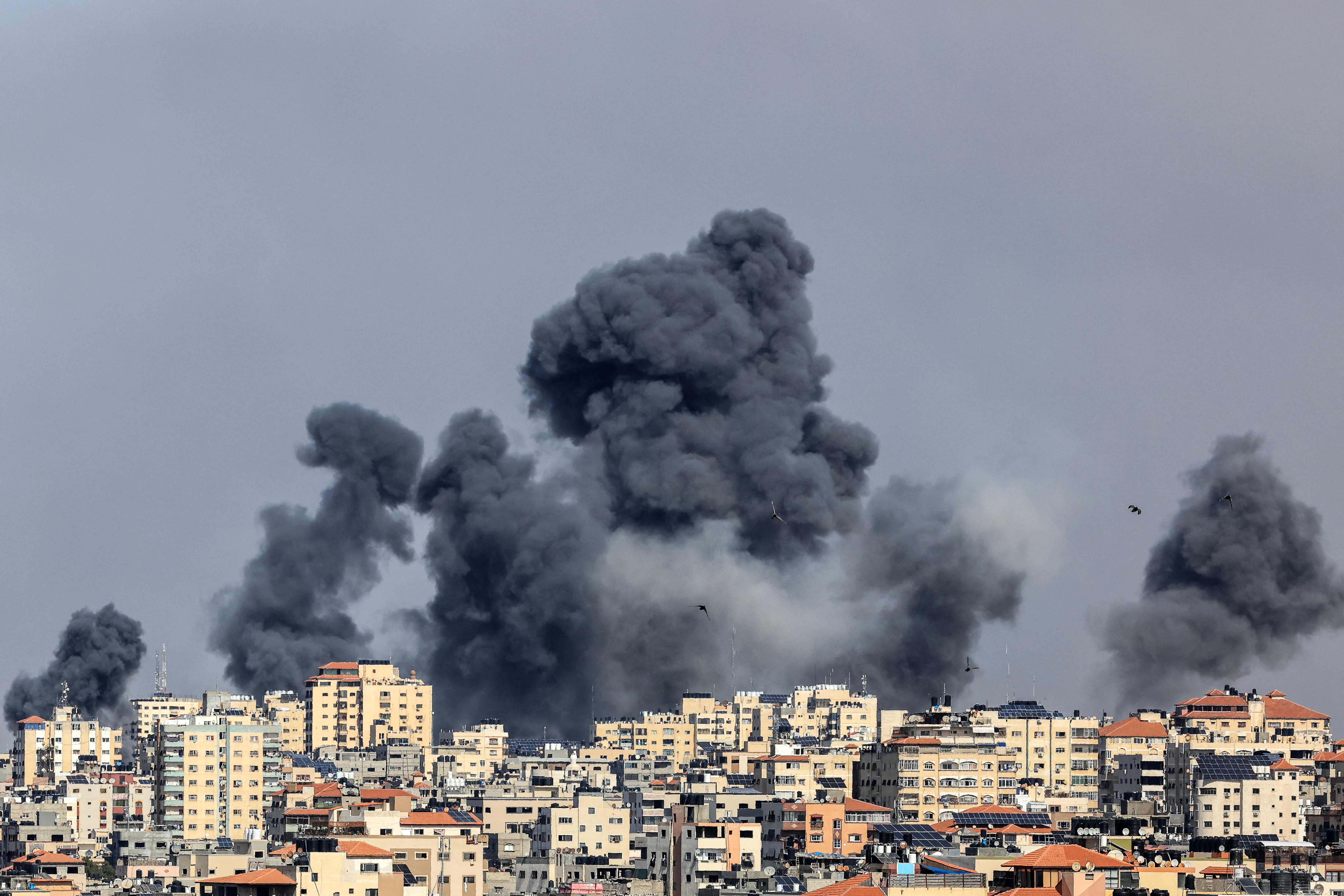
Your support helps us to tell the story
From reproductive rights to climate change to Big Tech, The Independent is on the ground when the story is developing. Whether it's investigating the financials of Elon Musk's pro-Trump PAC or producing our latest documentary, 'The A Word', which shines a light on the American women fighting for reproductive rights, we know how important it is to parse out the facts from the messaging.
At such a critical moment in US history, we need reporters on the ground. Your donation allows us to keep sending journalists to speak to both sides of the story.
The Independent is trusted by Americans across the entire political spectrum. And unlike many other quality news outlets, we choose not to lock Americans out of our reporting and analysis with paywalls. We believe quality journalism should be available to everyone, paid for by those who can afford it.
Your support makes all the difference.The timing is surely not a coincidence. Militant group Hamas – which rules Gaza and which is designated a terrorist organisation by the UK – launched an unprecedented surprise attack on Israel, with fighters breaching border fences and killing Israelis, reportedly holding civilians captive and firing thousands of rockets from the Gaza Strip.
It is not too dramatic to say Saturday is the most significant military challenge to Israel in the half century since the 1973 Yom Kippur War (also known as the October War), when a coalition of Arab states jointly launched a surprise attack.
Hamas launched its full-scale attack almost 50 years to the day of the start of that conflict. And no one saw it coming.
Israel says it is now very firmly at war.
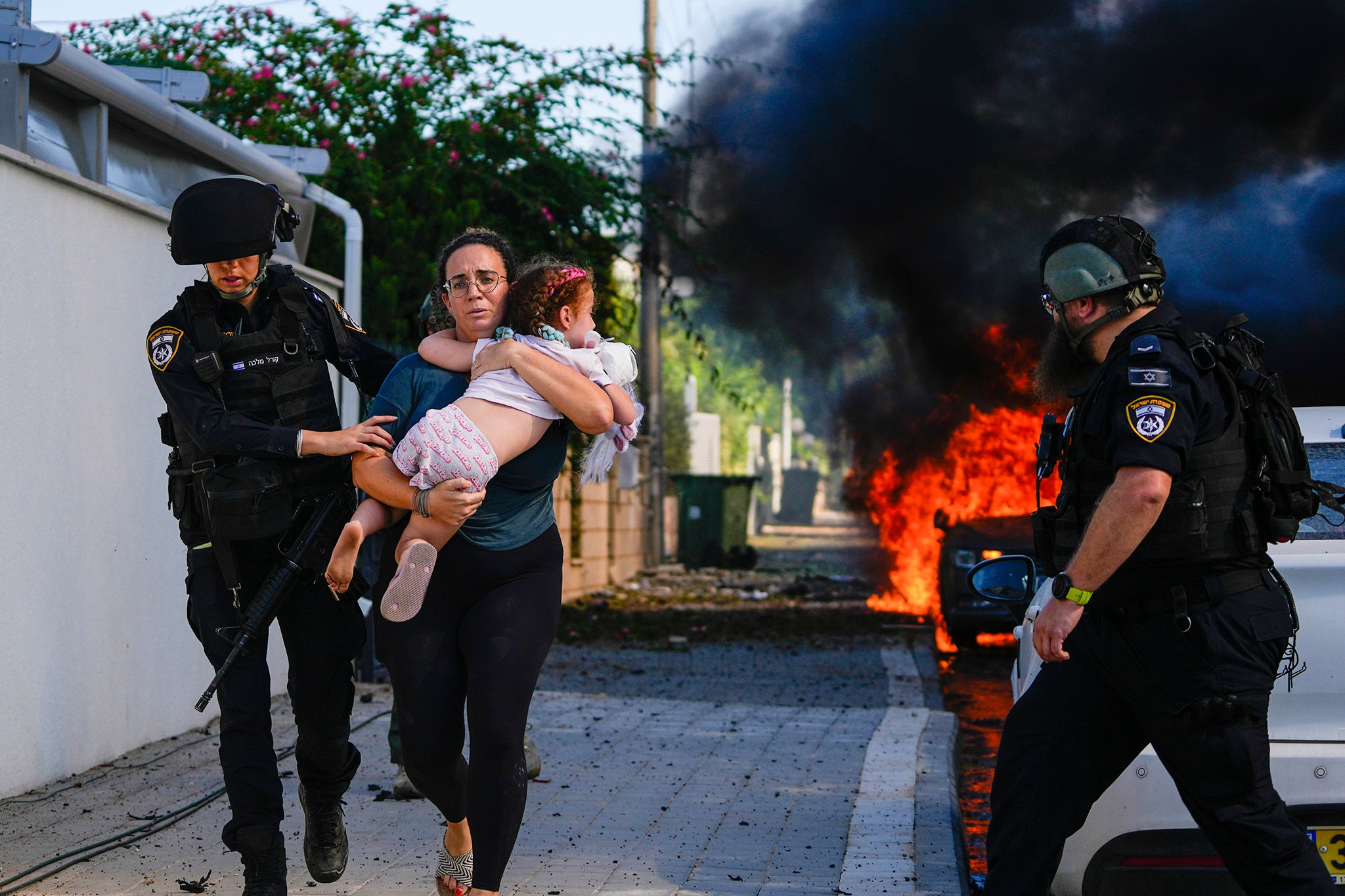
“This is not a so-called military operation, not another ‘round’ of fighting”, prime minister Benjamin Netanyahu declared, as he ordered an extensive reserve recruitment and mobilisation of forces to fight back. “Our enemy will pay a price the type of which it has never known. We are at war, we will win.”
The careful rhetoric which sometimes appears in speeches by Israeli officials around times of military escalation, including phrases like “proportionate response” and “defence”, was loudly absent from this statement.
Today – like the attack – is different. And the consequences will be huge.
Mr Netanyahu’s speech likely lays all options on the table, from an imminent ground invasion of Gaza like we have never seen before to the possible long-term redeployment of Israeli soldiers inside Gaza. That would be a first since Israel’s unilateral withdrawal from the tiny Gaza Strip in 2005.
It will have consequences for the volatile, occupied West Bank, where in recent months violence has surged and where nearly 200 Palestinians have been killed in Israeli military raids this year alone. Israel will likely shift its ferocity, after securing the south, to the west.
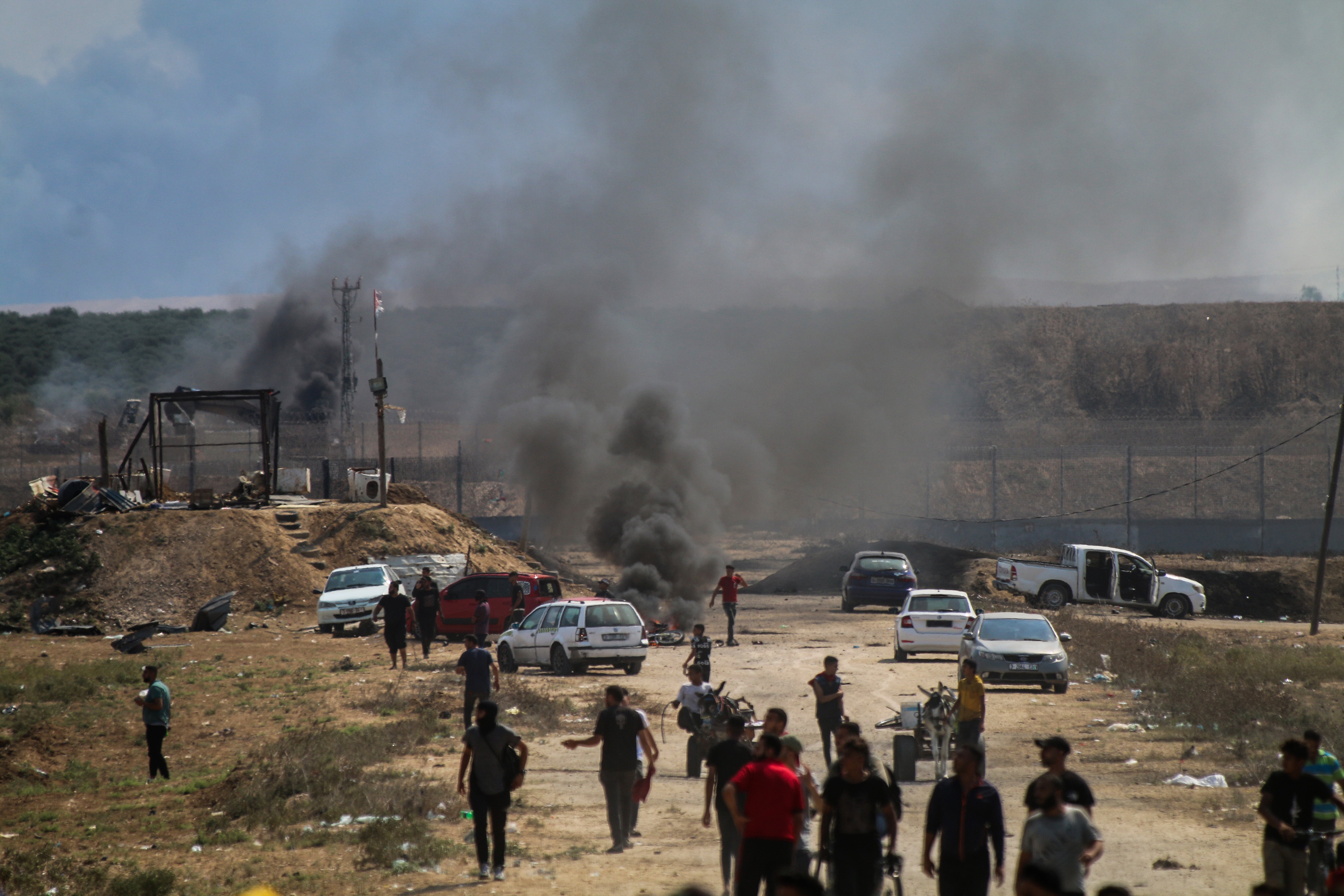
Peace negotiations between Israelis and Palestinians have long been dead in the water, but any glimmer of hope of reigniting the idea of a two-state solution could now be extinguished. Some have argued over the years that Israel has played up the existential threat of Hamas and its affiliated militant factions. From now on Israel will cite 7 October as an example of such a threat.
For Israelis, there will be ringing questions about how this was not on the radar of its intelligence. Israel is famed for being the birthplace of the world’s most powerful surveillance software. It has serious eyes on Gaza, which is only 42km long and 12km wide.
When you are in the Strip, the one constant is the incessant buzz of Israeli observation drones in the sky. They have intelligence on the ground. They have (or had) near full control of what goes into and out of Gaza along its borders, after imposing a 16-year blockade following Hamas’s violent takeover of the Strip in 2007.
But clearly, they could not have seen this coming.
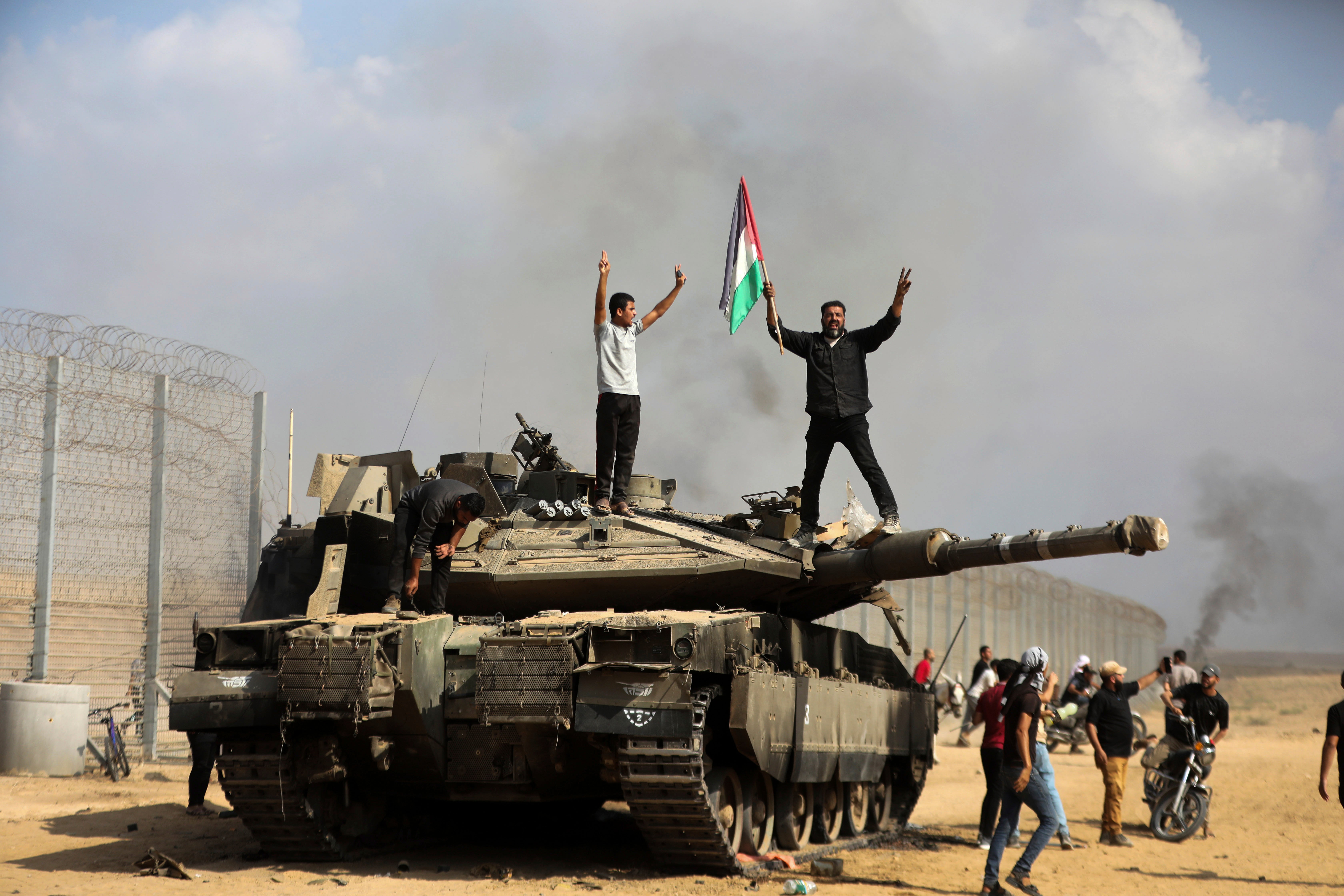
Israelis in the “Gaza envelope”, the areas in Israel around Gaza, told me they are sheltering in their homes and in hiding as Hamas gunmen roam the streets.
Other Israelis told local networks that militants were actually inside homes trying to break down the doors of their bomb shelters while they were hiding.
Video footage showed Israeli civilians running for their lives through fields. Other clips shared by Hamas media, which could not be independently verified, showed Palestinian militants apparently holding Israeli civilians hostage, taking soldiers captive, and bringing the bodies of Israeli soldiers in to Gaza. There was footage of the border fence ripped to shreds and also a destroyed Israeli tank.
Lebanese militant group Hezbollah, which supports Hamas, said the attack was a response to “the crimes of the Israeli occupation and aggression on the Holy sites” and designed to send a clear message to the Arab and Islamic world “especially those who strive for normalisation”.
This is clearly meant for Saudi Arabia and the US. Washington was working on striking a deal that would normalise ties between Israel and Saudi Arabia for the first time ever, following in the footsteps of the UAE.
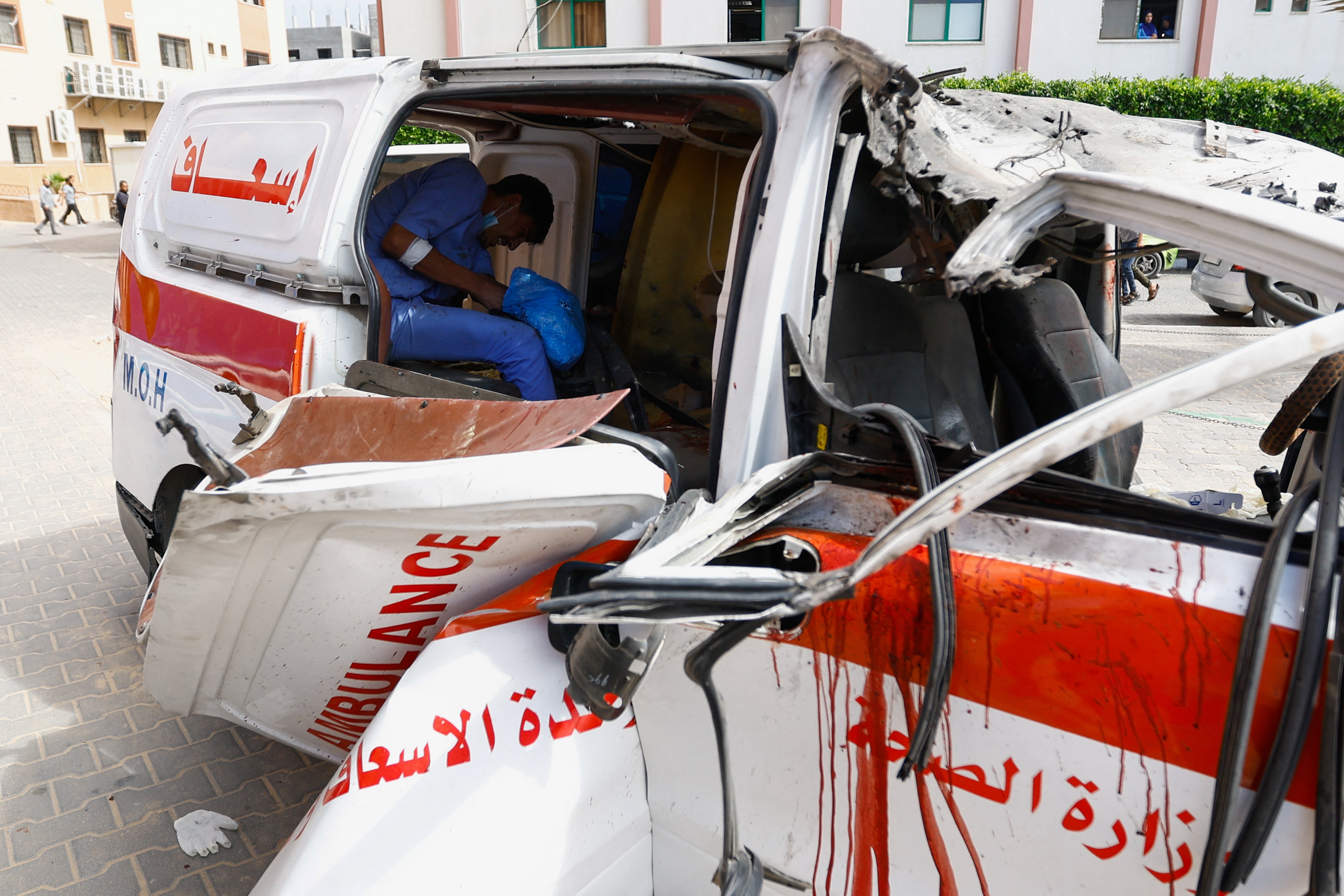
Saudi Arabia released an uncharacteristically speedy statement on Saturday calling for “the immediate halt to the escalation between the two sides”.
The statement carefully added that “the kingdom is reminded of its repeated warnings of the danger of an explosive situation as a result of the continued occupation and deprivation of the Palestinian people of their rights”. Does Riyadh fear violence within its own borders?
Right now the situation is disturbingly unclear and increasingly violent.
Israel’s police, which is also calling up all its reservists and volunteers, said there were “21 active scenes” in southern Israel, indicating the extent of the attack.
Rockets are still pounding southern Israel, the sirens are still wailing. The Israeli army, at the time of writing, has not got control of the south yet.
The only certainty is that this is a defining and bloody moment in history.



Join our commenting forum
Join thought-provoking conversations, follow other Independent readers and see their replies
Comments